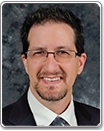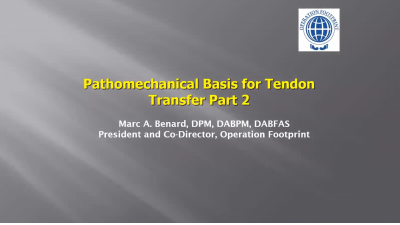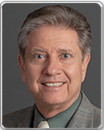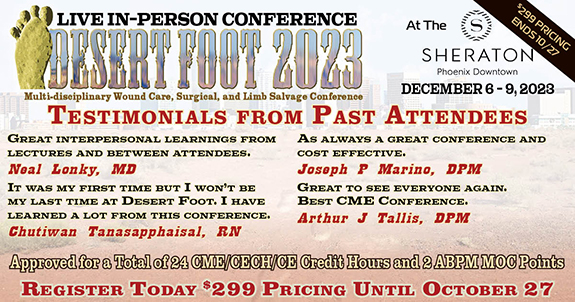
Practice Perfect 884
Residency Application Personal Statement: Your Chance to Speak
Residency Application Personal Statement: Your Chance to Speak

The cycles of life are often surprising. I found myself realizing the circularity of life while recently discussing the personal statement our students submit when applying for residency. Way back in Practice Perfect 467 (eight years ago, wow!), a discussion with a student resulting in writing an advice column about the personal statement. Here we are again, years later, having a similar conversation about the personal statement. If it’s important enough for a student to ask about it again, then it’s time to provide that advice again. After re-reading what I had previously written, the advice remains – to this residency director, at least – as reasonable today as it was eight years ago. So, here’s the encore of our advice to all of those students preparing their residency applications. Best wishes.
Students, this one’s for you. Recently, one of my students asked if I could advise her on what makes up a good personal statement. This is a very good question. As an assistant professor at Western University, I have some experience reviewing applications, which include a personal statement. Additionally, as a residency director, I’ve reviewed a lot of applications, and when it comes to personal statements, I rarely see a good one.
When it comes to personal statements, I rarely see a good one.
It may seem that the personal statement is a chore. For many of us, it is very difficult to talk about ourselves. We think we are bragging and don’t want to sound arrogant. The personal statement, though, is very important, since it’s your chance to show who you are. This is no easy feat – there really is a balance that must be struck to describe yourself in positive terms, explaining your strengths, while at the same time being concise and humble. The problem is that many students go through college and podiatry school having received little experience in writing. This makes it difficult to express oneself in a sophisticated and interesting manner. Regardless, though, it’s necessary.
Let’s dissect this issue a little by first talking about what makes up a poor personal statement. The statements I as a reviewer did not like had the following characteristics:
- Boring
- Predictable
- Usual
- Poor grammar
- One giant paragraph
- Too long
- Too short
- Did not tell me anything special about the applicant
For a residency applicant, I don’t want to know why you chose podiatry unless it’s something very unusual. If you didn’t like podiatry, then why would you have gone through 4 grueling years and then look for 3 more years? If you hate podiatry and are looking for a residency, then I don’t want you anyway. Residency applicant reviewers often look at more than 100 personal statements, many of which say the same thing – boring and predictable.
I’m constantly surprised by how poor the grammar is for many applicants. Have someone read your personal statement, for heaven’s sake. You must know someone who has even a basic working knowledge of English grammar. I’m also surprised by how many applicants submit letters that are either one giant paragraph (very hard on the eyes) or one tiny paragraph that says nothing of consequence about the applicant. When I receive these “surprises”, I quietly thank the universe for showing me that the particular applicant doesn’t have the sense to write a reasonable personal letter. Better to learn this at the start of the process rather than after they have matched with my residency!
I’m constantly surprised by how poor the grammar is for many applicants. Poor grammar makes a very bad first impression.
If those are the bad, what are the characteristics of a good personal statement? Here you go. A quality personal statement has the following:
- Has a hook at the beginning - Grab my interest right at the beginning. Make me want to read further. Creativity and a sense of humor are important. For example, narrate an exciting event that happened while on rotations. Maybe you were part of a code or an exciting surgery.
- Is well worded with appropriate grammar - Need I say more? Proofread your statement. Then proofread it again. And again. And again. Give it to someone you trust to give you a solid quality opinion. Then read it again.
- Is exciting or at least interesting to read - If I’m bored, I’ll start skimming. If I skim, then I don’t remember anything about the applicant. You don’t want to blend in with all the other applicants. Be different. Keep me interested so I can get to know you. Proofread your statement for interest. If you’re bored reading it, then imagine how a stranger reading it will feel.
- Tells something real about the applicant - It’s a personal statement. Make it personal. Tell me about you. Show me why you will be an interesting and/or challenging person for me to teach for the next 3 years.
- Is well worded - Show me, don’t tell me. This is true for most creative writing. If you have leadership experience, don’t tell me you have leadership experience. Show me. Explain about your leadership skills and their significance. Don’t tell me you’re a team player. Describe a specific experience in which you successfully worked as part of a team. This will make your statement much more sophisticated. Understand that past experience is the best indicator we have for future performance. Clearly set out the case to show how your unique history makes you the best applicant for a particular program.
Remember, the personal statement is your chance to use your voice to speak to those residencies. Take this seriously. Show those programs how interesting, intelligent, and motivated you are. Don’t procrastinate. Writing a good personal statement takes time, so give yourself as much time as possible. Consider these suggestions for a successful personal statement and get working. I’m looking forward to reading your statement soon.
Best wishes.

Jarrod Shapiro, DPM
PRESENT Practice Perfect Editor
[email protected]

































Comments
There are 0 comments for this article